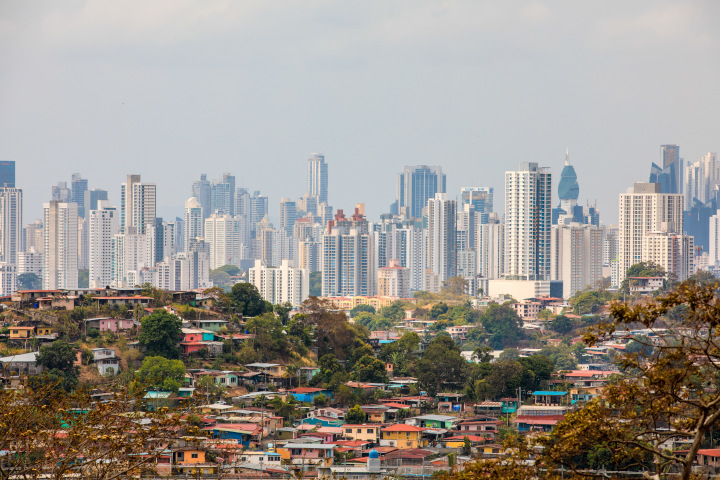
June 6, 2024
Theory tells us that democracies should become more equal. So why are they still so unequal? Gideon Coolin, Emanuele Sapienza, and Andy Sumner on their new UNDP paper that unpicks the politics of inequality.
Read more >>
What’s special about feminist research?
November 19, 2019
In this blog, Caroline Sweetman, editor of G&D, writes about the shared political project that underpins the feminist research agenda.
Read more >>
How feminist research can help confront the climate crisis
November 11, 2019
As the impacts of global heating are already being felt and we are warned of the irreversible impacts, Maria Tanyag (@maria_tanyag) reflects on how an intersectional lens, an ethics of care, and women’s situated knowledge will increasingly prove to be key and advantageous tools for confronting the climate crisis. Maria Tanyag is a Lecturer at the Department of International Relations, Coral
Read more >>
The ‘NGO-ization’ of research: what are the risks?
November 1, 2019
Pierre Basimise Ngalishi Kanyegere is a researcher for the Land Rush project and an IT technician at ISDR-BUKAVU. This piece is part of the new “Bukavu Series” blog posts by the GIC Network. In the DRC, academic research is very often conducted within the framework of non-governmental organizations (NGOs). These organizations commission research to support their activities. One might call such a shift
Read more >>
What are the downsides for Southern Scholars of Open Access to academic journals?
September 23, 2019
Duncan Green and Maria Faciolince consult #PowerShifts authors on how to try and sort out an unintended consequence of Open Access. For several years, there has been a push to make academic journals Open Access for readers, and Duncan’s been a big supporter. OA is a good thing in terms of allowing readers, North and South, to get access to
Read more >>
Why trust and intimacy are vital resources in research
September 12, 2019
Sandrine N’simire is a researcher at the Centre for Public Authority and International Development at the LSE. She discusses the challenge of building trust between researchers and respondents during research in Goma, DRC, and the eventual benefits from approaches that embrace trial and error.This post forms part of a series exploring Going Against the Flow, an ongoing project on water governance
Read more >>
The “local” researcher – merely a data collector?
August 20, 2019
In this post, Stanislas Bisimwa Baganda writes about imbalanced power relations in field research, which can not only have negative impacts on the quality of work, but endanger the lives of local research assistants. He is a researcher in the Groupe d’Etude sur le Conflit et la Sécurité Humaine (GEC-SH) and a consultant in project management. This piece is part
Read more >>
5 Top Tips for Designing Research to change Social Norms on Gender (or anything else)
August 7, 2019
Anam Parvez Butt is a Gender Justice Research Lead in the research team at Oxfam GB. Gopika Bashi is the Asia Campaigner for the Enough Campaign at Oxfam International. As researchers and campaigners in development organisations we constantly grapple with the question of how to design research that is useful to influencing change. At Oxfam, we’ve been thinking a lot
Read more >>
“Waiting for the morning birds”: researcher trauma in dangerous places
July 9, 2019
Thamani Mwaka Précieux is a researcher with Land Rush at the Institut Supérieur de Développement Rural of Bukavu. This piece is part of the new “Bukavu Series” blog posts by the GIC Network. Doing research in the DRC is a dangerous job, due to widespread insecurity in various parts of the country, and complicated by the presence of multiple armed groups. This
Read more >>
The challenges facing female researchers in conflict settings
June 24, 2019
Irène Bahati is a teaching assistant at the Department of Commercial Sciences at ISP/Bukavu and researcher at the Research Group for Violent Conflict and Human Secutity GEC-SH. This piece is part of the new “Bukavu Series” blog posts by the GIC Network. Research is often seen as a man’s job, and in a patriarchal society it can be socially difficult for a woman
Read more >>
“When will we get a report on your findings?”: reflections on researcher accountability from DRC
June 20, 2019
Christian Chiza Kashurha is a teaching assistant at the Department of History of ISP-Idjwi and researcher at GEC-SH, Bukavu, DRC. This piece is part of the new “Bukavu Series” blog posts by the GIC Network. Throughout the Global South, in countries such as the Democratic Republic of the Congo, research projects of researchers in the North are increasingly carried out either by, or with
Read more >>
The UK’s ridiculous, self-harming scandal of visa rejections for visiting academics
May 21, 2019
We had a blog training workshop at the LSE last month where only one person out of 25 expected showed up. No, it wasn’t because they’d heard how boring I am, it was because they were Africans trying to attend the LSE’s Africa Summit and various other events, but they couldn’t get visas. So we (Esther Yei-Mokuwa from Sierra Leone,
Read more >>